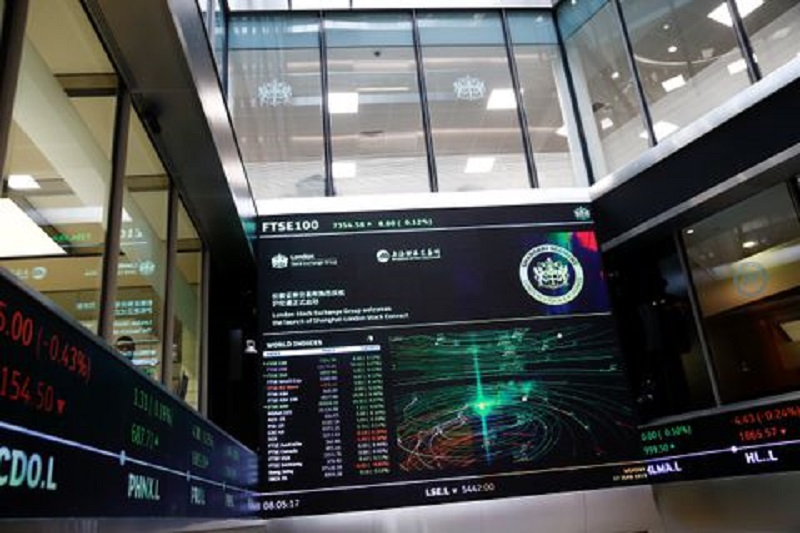Investing.com -- European markets closed higher on Thursday after trading in a mixed fashion earlier in the day, as investors digested regional confidence data while geopolitical tensions weighed on overall market sentiment.
Germany’s DAX index closed 0.8% higher, while the UK’s FTSE 100 also gained 0.8%, and France’s CAC 40 rose 0.2%.
Business confidence rises in Europe
Data released earlier Thursday showed rising confidence in the eurozone's second-largest economy, as France’s business climate index rose to 97 in November, an increase from the revised 93 the previous month, and above the 95 expected.
Additionally, British manufacturers expect their output to grow after a recent slump, the Confederation of British Industry said on Thursday, with is monthly industrial trends survey showing output expectations for the next three months improved to +9 in November from -1 in October, the highest since August.
Nvidia guidance weighs
A disappointing revenue forecast from AI bellwether Nvidia (NASDAQ:NVDA) weighed on European chip shares, with ASML (AS:ASML), Infineon (ETR:IFXGn) and ASM International (AS:ASMI) broadly lower.
Elsewhere, JD Sports Fashion (LON:JD) stock slid 15.5% after the sportswear retailer warned that its annual profit would come in at the low end of its guided range.
Soitec (EPA:SOIT) (EPA:SOIT) stock climbed 7.5% after the French semiconductor materials supplier delivered a reassuring set of first-half fiscal 2025 results and reiterated its full-year guidance.
Novartis (SIX:NOVN) stock rose 0.6% after the Swiss drugmaker raised its growth guidance, indicating optimism about its mid-term performance, while Zurich Insurance (SIX:ZURN) rose 2.8% after the company's upbeat three-year targets.
Halma (LON:HLMA) rose 5.7%, as the health and safety device maker reported its half-year results.
Geopolitical and monetary policy risks weigh
Beyond corporate earnings, investor attention will also be drawn to geopolitical developments and central bank policies.
ECB policy maker François Villeroy de Galhau’s remarks on tariff impacts and monetary policy flexibility offer critical insights for assessing inflationary pressures and trade risks in Europe.
Meanwhile, the U.S. manufacturing outlook and potential tariff hikes under the incoming Trump administration remain key considerations for global market sentiment.
Oil gains on escalating Russia-Ukraine tensions
Crude oil prices rose Thursday, driven by escalating geopolitical tensions stemming from the ongoing conflict between Russia and Ukraine.
By 12:03 ET, Brent crude rose by 1.4% to $73.83 per barrel, while U.S. crude (WTI) was up 1.5% to $69.81 per barrel.
The heightened fears of a potential escalation in hostilities overshadowed the impact of rising U.S. crude inventory levels reported in recent days.
(Navamya Acharya and Peter Nurse contributed to this article.)
